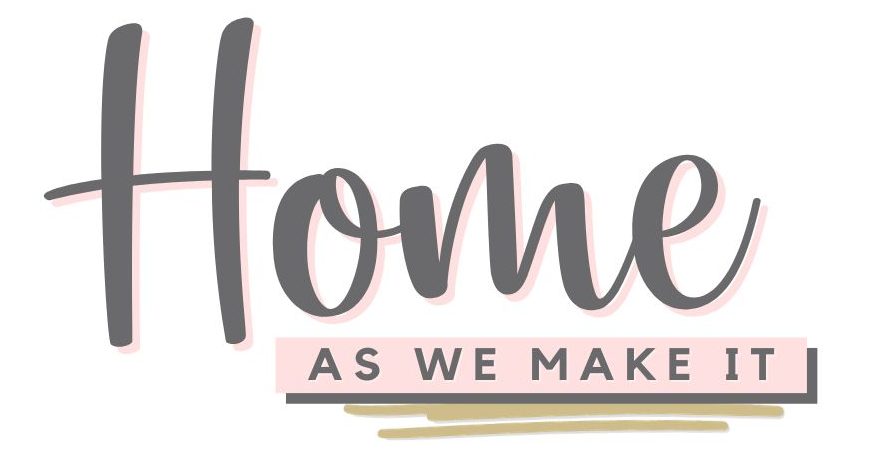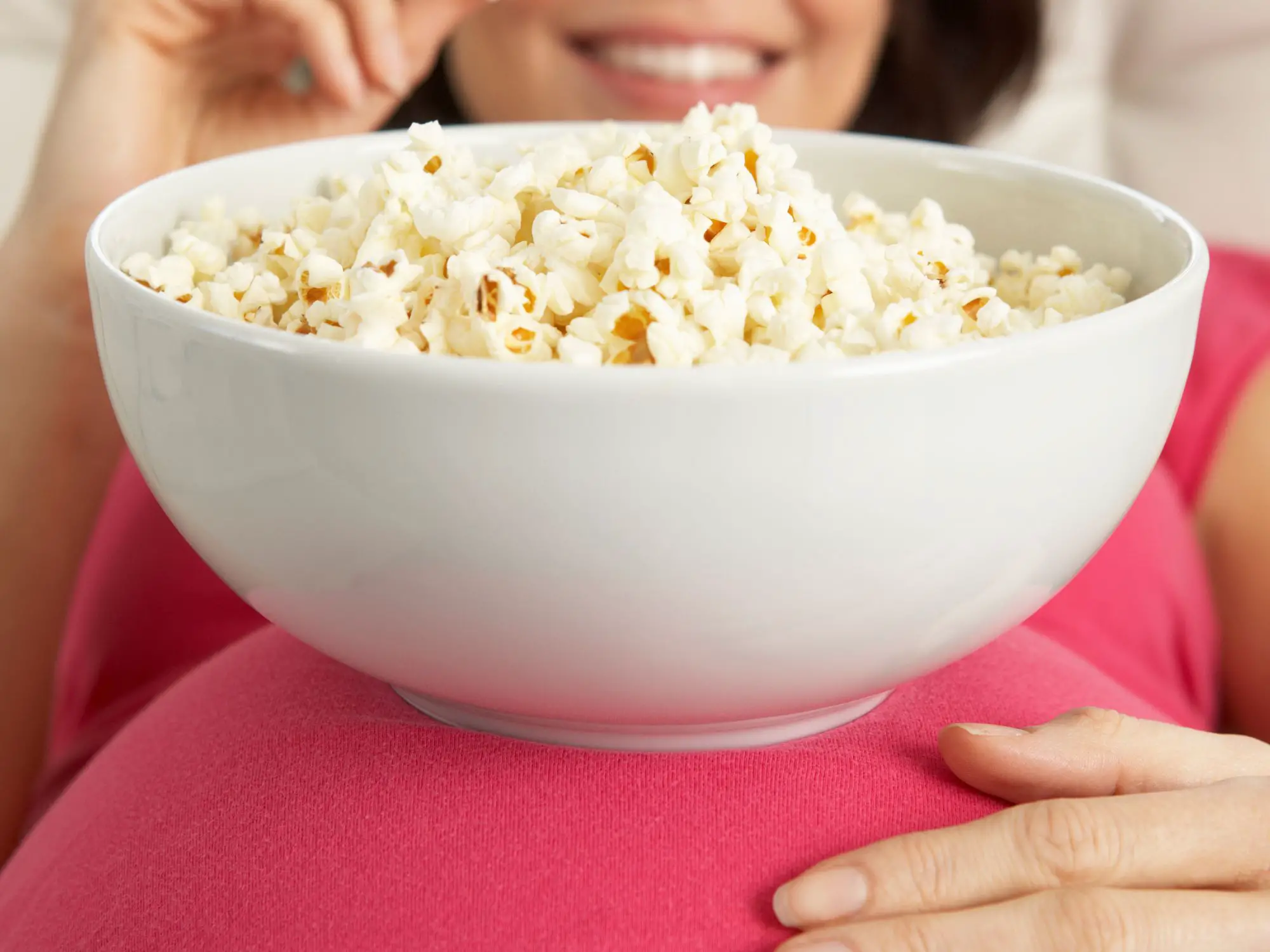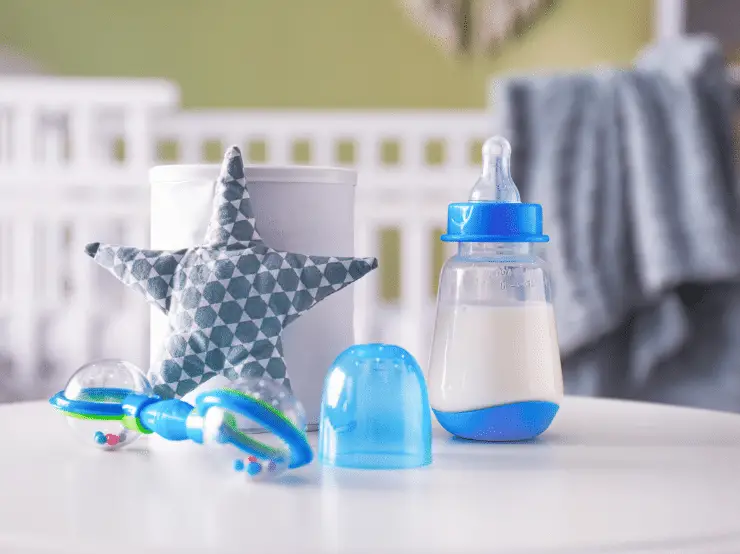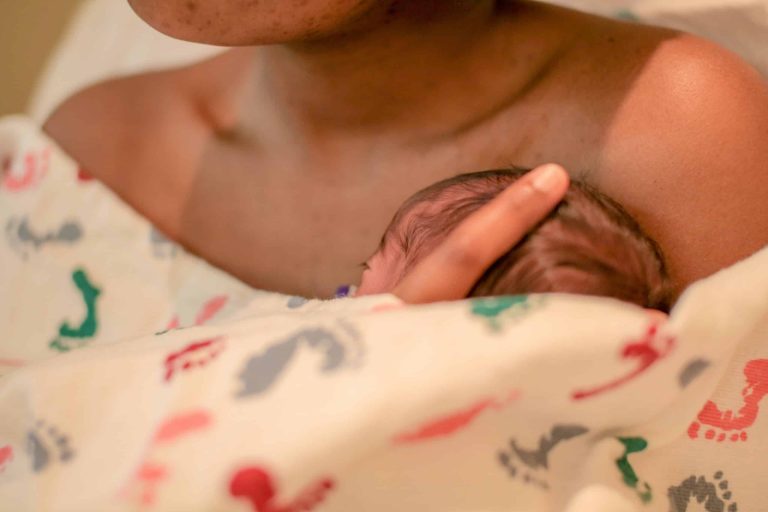Can I Eat Popcorn While Pregnant? Is It Safe?
Pregnancy is a time when dietary considerations take on an extra level of importance. Not only do you have to think about your own health, but also the health of your unborn child.
Popcorn is a popular snack food that many people enjoy. But if you’re pregnant, you may be asking yourself “Can I eat popcorn while pregnant?” The good news is that popcorn is generally considered safe to eat during pregnancy.
Note: This post may contain affiliate links, which means if you buy from my link I might make a small commission. This does not affect the price you pay. See the full affiliate disclosure here.
However, it’s important to pay attention to the type of popcorn you consume. Store-bought bags of popcorn such as kettle corn, caramel corn, and so on are also high in sugar and fat and should be avoided in pregnancy with preference given to natural or air-popped corn.
It’s also important to avoid popcorn that has been flavored with artificial ingredients, as they can be harmful to your developing baby. Instead, opt for plain popcorn that has been popped in oil or air-popped.
In this article ?
- Is It Safe To Eat Popcorn While Pregnant?
- The Nutritional Benefits of Popcorn
- Risks of Eating Popcorn While Pregnant
- Alternatives to Popcorn During Pregnancy
- Foods to Avoid During Pregnancy
- Is it OK to eat Microwave Popcorn While Pregnant?
- Is Popcorn Safe in the First Trimester?
- What are the Benefits of Popcorn During Pregnancy?
- Why do I Crave Popcorn when Pregnant?
- Is Popcorn Good for Pregnancy Nausea?
- Conclusion

Is It Safe To Eat Popcorn While Pregnant?
The American Academy of Pediatrics recommends that pregnant women eat popcorn in moderation. Popcorn can be a healthy snack, especially when it is air-popped. The key is to make sure there is no added salt or butter, as this can increase your sodium and fat intake, and be sure to practice good oral hygiene after eating popcorn. If you choose to add a flavor, it should be limited to a food-grade, natural flavoring. Although popcorn is a healthy snack when eaten without added fat or sugar, it should be consumed in moderation to ensure you meet your daily nutritional requirements.
The Nutritional Benefits of Popcorn
The nutritional value of popcorn is often underestimated due to its association with unhealthy toppings and additives such as butter, salt, and artificial flavorings. However, at its core, popcorn is a whole grain that offers several significant health benefits.
Firstly, popcorn is a rich source of dietary fiber. A single serving of popcorn can provide approximately 13% of the daily recommended intake of fiber, which aids in digestion, helps to control blood sugar levels, and can lower the risk of heart disease by reducing levels of ‘bad’ LDL cholesterol.
Furthermore, popcorn is low in fat and calories, making it an excellent choice for those looking to maintain a healthy weight. When air-popped and eaten without butter or oil, it’s a low-calorie snack that can satisfy cravings without contributing to calorie overload.
Interestingly, popcorn is also rich in polyphenols – antioxidants that have been linked to several health benefits such as improving digestion, better blood circulation, and even potentially reducing the risk of certain types of cancer. While fruits and vegetables are typically lauded for their antioxidant content, whole grains like popcorn can also be a valuable source.
Moreover, popcorn contains modest amounts of several essential vitamins and minerals, such as vitamins B1 (thiamine), B3 (niacin), and B6, as well as iron, magnesium, phosphorus, and zinc.
Here’s a general breakdown of the nutritional value of 100 grams of air-popped popcorn:
| 100 grams | Micronutrients | Vitamins |
|---|---|---|
| Calories: 387 kcal Protein: 12.9 g Fat: 4.1 g Carbohydrates: 78 g Dietary Fiber: 15.1 g Sugars: 0.9 g | Calcium: 7 mg Iron: 2.7 mg Magnesium: 132 mg Phosphorus: 358 mg Potassium: 329 mg Zinc: 3.08 mg | Vitamin C: 0.1 mg Thiamin (B1): 0.2 mg Riboflavin (B2): 0.1 mg Niacin (B3): 2.3 mg Vitamin B6: 0.1 mg Folate (B9): 59 mcg Vitamin E: 0.5 mg Vitamin K: 0.3 mcg |

Benefits of Popcorn During Pregnancy
- Can Accelerate Baby’s Development: Popcorn can be beneficial during pregnancy as it contains folate, a vital nutrient that supports the baby’s neural tube development, helping to prevent birth defects.
- Constipation reliever: Due to its high fiber content, popcorn can help relieve constipation, a common discomfort experienced during pregnancy, promoting healthy digestion and bowel movements.
- A perfect anti-weight gain snack: Popcorn can be a satisfying and low-calorie snack option for pregnant women, allowing them to indulge in a tasty treat while managing their weight gain during pregnancy.
- Its diabetic friendly: As a whole grain snack with a low glycemic index, popcorn can be a suitable choice for pregnant women with diabetes, helping to maintain stable blood sugar levels while satisfying cravings.
- May prevent cancer: Popcorn contains antioxidants called polyphenols, which have been associated with potential cancer-preventive properties, making it a potentially beneficial addition to a pregnant woman’s diet to support overall health.
Risks of Eating Popcorn While Pregnant
Despite the numerous nutritional benefits of popcorn, there are certain considerations and risks to be aware of when consuming popcorn while pregnant.
- Digestive Issues: Popcorn is high in fiber, which, while beneficial for digestive health, can also cause issues like bloating, gas, and constipation when consumed in excess. Pregnant women often experience changes in their digestive systems, and excessive intake of high-fiber foods like popcorn may exacerbate these issues.
- Unhealthy Additives: While plain, air-popped popcorn is a healthy snack, many commercially available popcorns come loaded with salt, butter, sugar, and artificial flavors. High sodium intake can lead to increased blood pressure, a particular concern during pregnancy as it can potentially lead to complications like preeclampsia.
- Risk of Choking: Popcorn is also a common choking hazard due to its small size and ability to get stuck in the throat, a risk that can be increased by the changes in digestion and reflux often experienced during pregnancy.
- Dental Problems: Popcorn kernels can get lodged between teeth, leading to gum irritation or even infection. During pregnancy, changes in hormones can make women more susceptible to gum disease, so maintaining good oral hygiene is crucial.
- Popped vs. Unpopped Kernels: Accidentally biting into an unpopped kernel can potentially cause dental damage, like cracked or chipped teeth.
Alternatives to Popcorn During Pregnancy
While popcorn can be a healthy snack during pregnancy, there may be instances where alternatives are sought, whether due to the risks discussed earlier or simply for variety. Here are some nutritious alternatives to popcorn that can be enjoyed during pregnancy:
- Fruits and Vegetables: Fresh fruits and vegetables are always a healthy snack option. They’re packed with essential vitamins and minerals, and the natural sugars in fruit can help satisfy cravings for sweets. Veggies like carrot and cucumber sticks, perhaps paired with a healthy dip like hummus, can also provide a satisfying crunch.
- Nuts and Seeds: Nuts and seeds are rich in fiber, protein, and healthy fats, making them a nutritious snack. They can be eaten raw or lightly roasted, and they provide a satisfying crunch similar to popcorn. However, just like popcorn, they should be consumed in moderation due to their high calorie content.
- Whole Grain Crackers: Whole grain crackers can provide the same whole grain benefits as popcorn, but without the risk of choking or dental issues. They can be enjoyed with low-fat cheese or a spread of avocado for added nutritional benefits.
- Yogurt with Berries: A bowl of low-fat yogurt with a handful of mixed berries is a great source of protein, calcium, and antioxidants. This combination can also help satisfy a sweet tooth in a healthier way.
- Edamame: Edamame, or young soybeans, are a great source of protein, fiber, and various vitamins and minerals. They can be steamed and lightly salted for a healthy, savory snack.
- Air-Popped Rice Cakes: Similar to popcorn, rice cakes can satisfy that desire for a light, airy snack, but they are larger and thus pose less of a choking hazard. Opt for brown rice cakes when available to maximize nutritional benefits.
As with any food choices during pregnancy, it’s essential to ensure a balanced diet and seek personalized advice from a healthcare provider to meet individual nutritional needs and circumstances.
Foods to Avoid During Pregnancy
Pregnancy is a time when the body’s needs and sensitivities change, making it necessary to avoid certain foods. Here are some foods to avoid during pregnancy:
These foods include:
- Raw or Undercooked Seafood
- High-Mercury Fish
- Raw or Undercooked Meat and Eggs
- Unpasteurized Dairy and Juice
- Unwashed Fruits and Vegetables
- Processed Junk Foods
- Excess Caffeine
- Alcohol
- Raw Sprouts
- Deli Meats and Hot Dogs
Common Myths and Misconceptions About Snacking on Popcorn During Pregnancy
As with many topics related to pregnancy and nutrition, there are some common myths and misconceptions surrounding the safety of snacking on popcorn. Let’s debunk a few of these myths:
1. Myth: Popcorn can harm the baby’s development.
Fact: Popcorn, when consumed in moderation and without excessive additives, can provide essential nutrients that support the baby’s growth and development.
2. Myth: Popcorn can cause gestational diabetes.
Fact: While popcorn is a carbohydrate-rich snack, it can be enjoyed as part of a balanced diet without causing gestational diabetes. It’s important to monitor your overall carbohydrate intake and make healthy choices.
3. Myth: Popcorn can lead to excessive weight gain during pregnancy.
Fact: Popcorn is a low-calorie snack when prepared without excessive butter, salt, or sugary toppings. Enjoying popcorn in moderation as part of a balanced diet is unlikely to contribute to excessive weight gain.
Remember, it’s always best to consult with your healthcare provider for personalized advice and recommendations based on your individual needs and medical history.
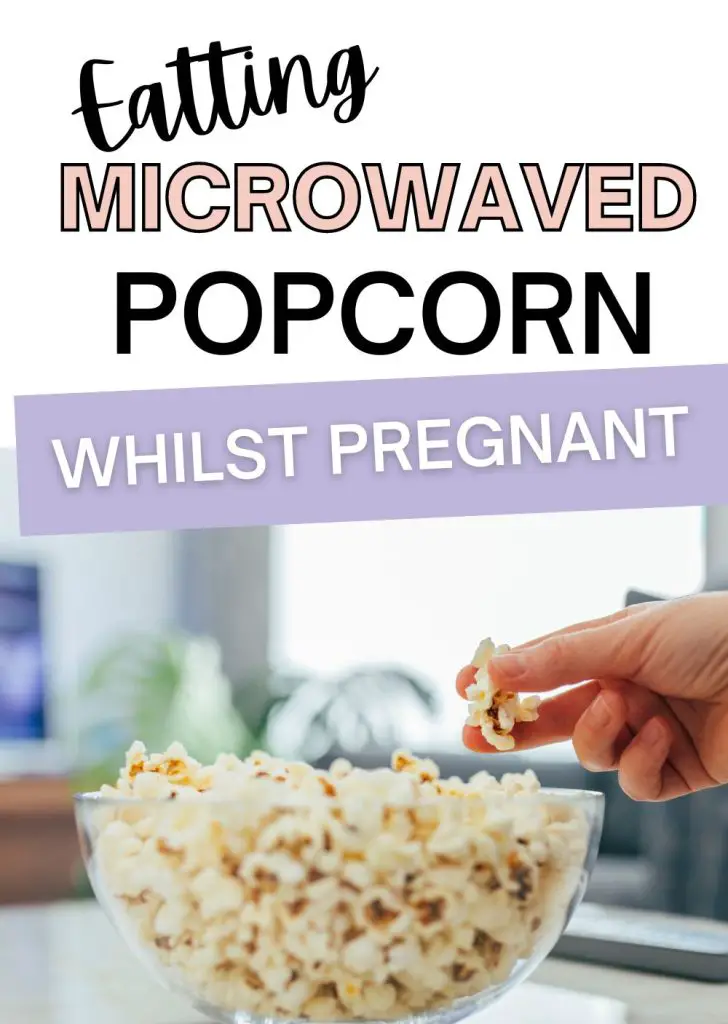
FAQ
Is it OK to eat Microwave Popcorn While Pregnant?
Microwave popcorn is a popular snack food that is easy to prepare and convenient to eat. However, when it comes to pregnancy, many women are concerned about whether it is safe to consume. In this section, we will explore the safety of microwave popcorn during pregnancy and what factors to consider before indulging in this snack.
What to Consider
When considering whether it is safe to eat microwave popcorn during pregnancy, there are a few factors to keep in mind. The first is the ingredients in the popcorn. Some microwave popcorn brands contain additives, such as sugar, salt, and trans fats, that may not be healthy for pregnant women. It is important to read the label carefully and choose brands that have minimal additives and are low in sodium.
Another factor to consider is the cooking method. Microwave popcorn bags often contain a chemical called perfluorooctanoic acid (PFOA), which has been linked to cancer and developmental problems. Air-popped popcorn is a healthier alternative, as it does not contain PFOA or other harmful chemicals.
Potential Risks
While microwave popcorn is generally safe to eat in moderation during pregnancy, there are some potential risks to be aware of. One risk is the possibility of listeria contamination. Listeria is a type of bacteria that can cause serious illness in pregnant women and their unborn babies. To reduce the risk of listeria, it is best to avoid cinema or movie theater popcorn, which may have been sitting out for a long time.
Another risk is the high calorie and fat content in some microwave popcorn brands. Pregnant women should aim to consume a healthy diet that is low in saturated fat and cholesterol to reduce the risk of heart disease and other health problems.
In summary, microwave popcorn can be a safe and healthy snack option during pregnancy as long as pregnant women choose brands that are low in additives and sodium, and cook it using a safe method. It is important to be aware of the potential risks of listeria contamination and high calorie and fat content. Pregnant women should always consult with their healthcare provider before making any dietary changes to ensure that they are meeting their nutritional needs and reducing the risk of complications such as gestational diabetes, hypertension, and liver disease.
Is Popcorn Safe in the First Trimester?
Yes, popcorn is safe to eat during the first trimester and throughout the entire pregnancy. However, moderation is key, and it’s essential to stick with healthier versions like air-popped popcorn.
What are the Benefits of Popcorn During Pregnancy?
Popcorn during pregnancy can help manage heartburn, improve digestion, contribute to stable blood pressure, and provide essential nutrients. It can also help manage weight gain due to its low-calorie content.
Why do I Crave Popcorn when Pregnant?
Cravings during pregnancy vary for each woman and are usually due to hormonal changes. If you’re craving popcorn, it might be your body’s way of wanting more fiber or a satisfying, low-calorie snack
Is Popcorn Good for Pregnancy Nausea?
While popcorn is not specifically known to combat nausea, its bland taste and high-fiber content can be a gentle option for a sensitive stomach during early pregnancy. However, each person’s experience with nausea is different, and what works for one may not work for another.
Conclusion
In conclusion, Can i eat popcorn while pregnant? Popcorn can be a healthy and beneficial part of a pregnancy diet. Its fiber content helps manage heartburn and improve the digestive system. Additionally, it can help maintain stable blood pressure when prepared without excessive salt. The whole grain offers essential nutrients beneficial for both the mother and the growing baby.
However, pregnant women should opt for air-popped popcorn and be mindful of portion sizes. It’s always advisable to consult with a healthcare provider or a dietitian regarding dietary choices during pregnancy. While popcorn can be a good snack choice, it should complement a balanced diet rich in fruits, vegetables, lean proteins, and other whole grains to ensure optimal health during this critical period.
Disclosure: I am not a medical person so this post serves only for informational purposes. I simply share what I’ve researched, tried, and found useful. Please consult your Prenatal care advisorbefore undertaking any alternative treatment.
